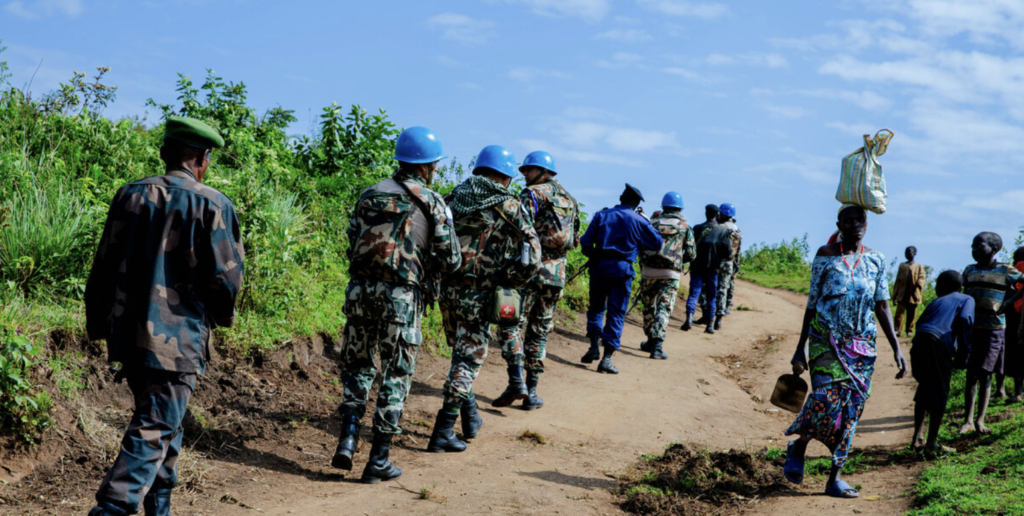Austria Must Prioritize Climate and Environmental Protection with a Strong, Independent Ministry
Greenpeace is sounding the alarm, urging Austria’s current government negotiators to ditch outdated thinking and prevent a regression in climate and environmental protection. The environmental organization points to a stark historical example: between 2000 and 2019, when environmental agendas were combined with the Ministry of Agriculture, progress stalled dramatically.
“Making climate and environmental protection a sidecar of the Ministry of Agriculture was a big mistake in the past,” says Sebastian Theissing-Matei, Greenpeace spokesman. "The result was negligent climate policy and unprecedented bird deaths. The new government must clearly reject this outdated approach and instead effectively protect us and our livelihoods.”
To support this warning, Greenpeace analyzed Austria’s climate and environmental protection policy from 2000 to the present using two key indicators: greenhouse gas balance for climate protection, and the Farmland Bird Index for species protection. Their findings paint a clear picture:
Stalled Climate Action
During the 2000-2019 period, climate-damaging emissions in Austria were only reduced by a meager one percent under the responsibility of then-agriculture ministers. This starkly contrasts with the EU, where emissions were reduced by a fifth over the same period. Only when an independent and strong climate ministry was established in 2020 did Austria see a significant acceleration in emissions reductions.
Devastating Impact on Biodiversity
Species protection also suffered under the combined ministry structure. Between 2005 and 2014, the Austrian bird population plummeted by approximately 36 percent due to agricultural policies that disregarded nature’s needs. Although the bird population later stabilized at a lower level, the damage inflicted during those years underscores the devastating consequences of neglecting biodiversity.
Greenpeace is deeply concerned about recent signals coming from the government negotiations. Chancellor Karl Nehammer has publicly expressed his desire to dismantle the current Climate and Environment Ministry into its separate components. Additionally, the fact that climate and environmental protection are being discussed in the same negotiation group as agriculture raises serious concerns for Greenpeace.
“When it comes to our future and our livelihoods, there can be no regression to the past,” emphasizes Theissing-Matei. “ÖVP, SPÖ, and NEOS must guarantee a strong, independent climate and environment ministry.”
This call for decisive action is echoed by renowned scientists Helga Kromp-Kolb (Scientist of the Year 2005) and Franz Essl (Scientist of the Year 2022), who have joined Greenpeace in urging the government to prioritize an independent and powerful ministry dedicated to climate and environmental protection. They, like Greenpeace, see the breaking down of this crucial ministry as a dangerous step backwards for Austria’s future, and they call on the leadership to prioritize safeguarding the environment for generations to come.
What were the negative environmental consequences, according to Greenpeace, of bundling climate and environmental issues with the Ministry of Agriculture in Austria?
## Austria Needs a Dedicated Climate Ministry, Says Greenpeace
**Interviewer:** Greenpeace is calling for a strong, independent ministry focused on climate and environmental protection in Austria. Sebastian Theissing-Matei, Greenpeace spokesperson, joins us today to explain why this is so crucial. Sebastian, welcome to the show.
**Sebastian Theissing-Matei:** Thanks for having me.
**Interviewer:** Greenpeace is very concerned about the future of climate and environmental protection in Austria. Can you elaborate on your concerns?
**Sebastian:** Absolutely. Our analysis shows a clear pattern of stagnation when climate and environmental issues were bundled under the Ministry of Agriculture, from 2000 to 2019. Greenhouse gas emissions barely budged during that period, while the EU as a whole achieved a 20% reduction. This demonstrates the urgent need for a dedicated ministry to prioritize these pressing issues.
**Interviewer:** You highlight a historical example. Can you explain what happened then and why it’s relevant today?
**Sebastian:**
Between 2000 and 2019, environmental protection was essentially treated as a sidecar of the Ministry of Agriculture. This led to a lack of focus and commitment to climate action, resulting in negligible emissions reductions and a worrying decline in farmland bird populations. We saw unprecedented bird deaths during this time, a clear indicator of a failing ecosystem.
**Interviewer:** So, what’s Greenpeace proposing?
**Sebastian:** We’re urging the current government negotiators to learn from the past and establish an independent Ministry for Climate Action, Environment, Energy, Mobility, Innovation and Technology. This will ensure that these critical areas receive the attention and resources they desperately need. Combining these crucial issues with agricultural concerns only hinders progress and threatens our future.
**Interviewer:** What specific benefits would an independent ministry bring?
**Sebastian:** A dedicated ministry would mean targeted policies, increased funding for green initiatives, and a clear line of responsibility. This would ultimately lead to more effective climate action, a healthier environment, and a more secure future for Austria. .
**Interviewer:** Sebastian Theissing-Matei, thanks for sharing your insights.
**Sebastian:**
Thank you for having me. [ [1](https://www.bundeskanzleramt.gv.at/en/federal-chancellery/the-austrian-federal-government/ministries.html) ]



